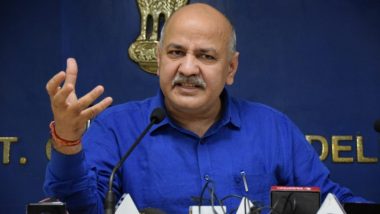New Delhi, November 19: Delhi Deputy Chief Minister and Education Minister Manish Sisodia was invited as a guest speaker at an online panel discussion on ‘systematic social emotional learning’ of the happiness curriculum by Harvard Graduate School of Education (HGSE) during its international education week to celebrate the successful implementation of ‘happiness classes’ across Delhi government schools.
Sisodia said that the Delhi Govt. wanted to design a curriculum for students that would prepare them to become lifelong learners. He said, “Happiness Curriculum is not a ‘value education class’ that preaches moral values to the students. Instead, it focuses on developing the mindset of the students to adopt the values in their everyday attitude and behaviour.” The panel line-up included Professor Fernando Reimers, Ford Foundation Professor of Practice in International Education at HGSE, Dr Anil Teotia, Chairperson of the Happiness Committee and Richa Gupta, co-founder of Labhya Foundation, who moderated the discussion. After Coding, STEM Education for Girl Students of Delhi Government Schools, Now 12,000 Students to Join CODEATHON Campaign: Manish Sisodia.
During the discussion, on being asked to share his vision for developing this curriculum, Sisodia said, “I’m just a politician who thinks education is the only way to reform society, and I believe that politicians should work as facilitators of education through better education." “Education is the only tool available that can reform the society, and give us a society that we all dream of,” Sisodia said. He added that education, globally, is being used to fill unemployment gaps and lessen poverty, but it still doesn’t address more human problems that the society faces.
“So far, successful education models around the world have been producing professionally sound people, but not emotionally sound people. Happiness curriculum works towards building a confident and a holistic mindset towards caste, creed, and religion so the students become more self-aware, and open towards each other,” Sisodia said.
The discussion further looked at understanding the need for social emotional learning (SEL) programs across systems around the world. Sisodia said, “Happiness Curriculum provides the toolkit for the children to scientifically observe their emotions and understand them. It's the science of emotions because once students are able to understand and recognise their emotions well, they will grow up to become better human beings”.
“The role of happiness curriculum then becomes critical in developing the mindset of the students as well as the teachers in adopting these ethical values in their behaviour. The students should be prepared coming out of school ready to live in the world as lifelong learners,” Sisodia said.
Prof. Reimer praised Sisodia’s vision, and said that the curriculum was pathbreaking, and impressive in tackling a huge challenge of building capacities of teachers, and enforcing happiness classes in all Delhi government schools.
Prof. Reimer said, “In a world that is changing very rapidly with an uncertain future with this pandemic being a reminder, it's important to question the deep purposes of schools, and education.” He added that educators helping students develop a sense of agency, ethics, and compassion for others is important, and happiness plays an equally important piece in this.













 Quickly
Quickly


